The psychology of persuasion. How to convince others and be able to recognize manipulations
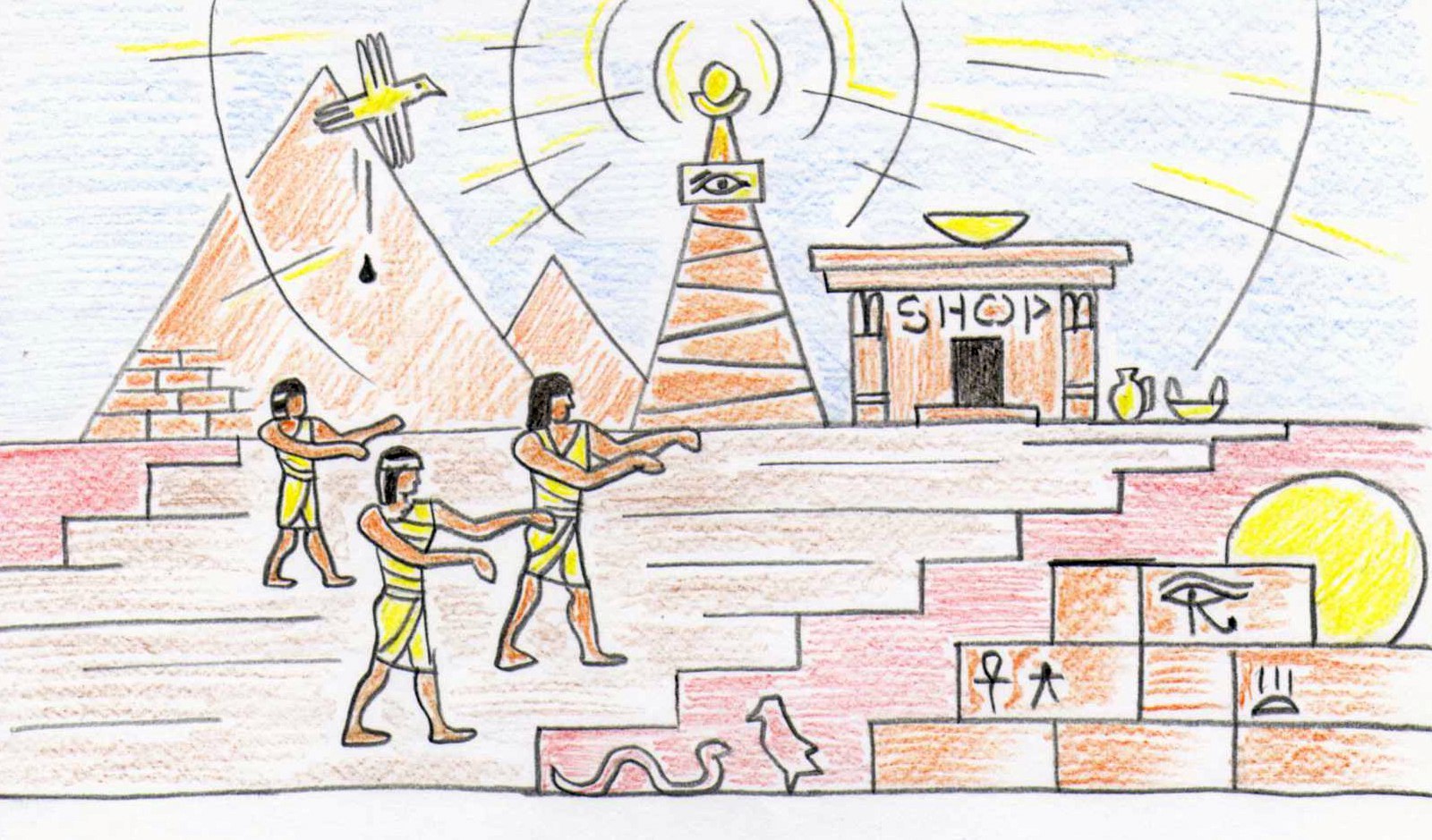
This article is a brief summary of Robert Cialdini's book Psychology of Persuasion . It will be useful to everyone who deals with people, sales and business. The book is so useful that it should be on the shelf of everyone. Besides the fact that we want to influence others, it is very useful to know when others are trying to influence us. Inside you will find many ways to persuade and, immediately after reading, you will easily notice when they try to manipulate you.
1. Create difficulties for the audience
Change the phrase: “Operators are waiting, call right now” to read: “If the operators are busy, please call back.” Thus, you will create a feeling of shortage: since the operators are often busy, it means that they take the goods well. In fact, you use social proof by telling potential buyers that your product has already been verified and that a lot of people like it.
It’s good when you are addressing a message to a specific audience. For example, guests of a particular hotel room or residents of their home. Write on the porch door: “We have the most non-smoking porch in the house and it always smells good. Welcome!".
2. Social proof
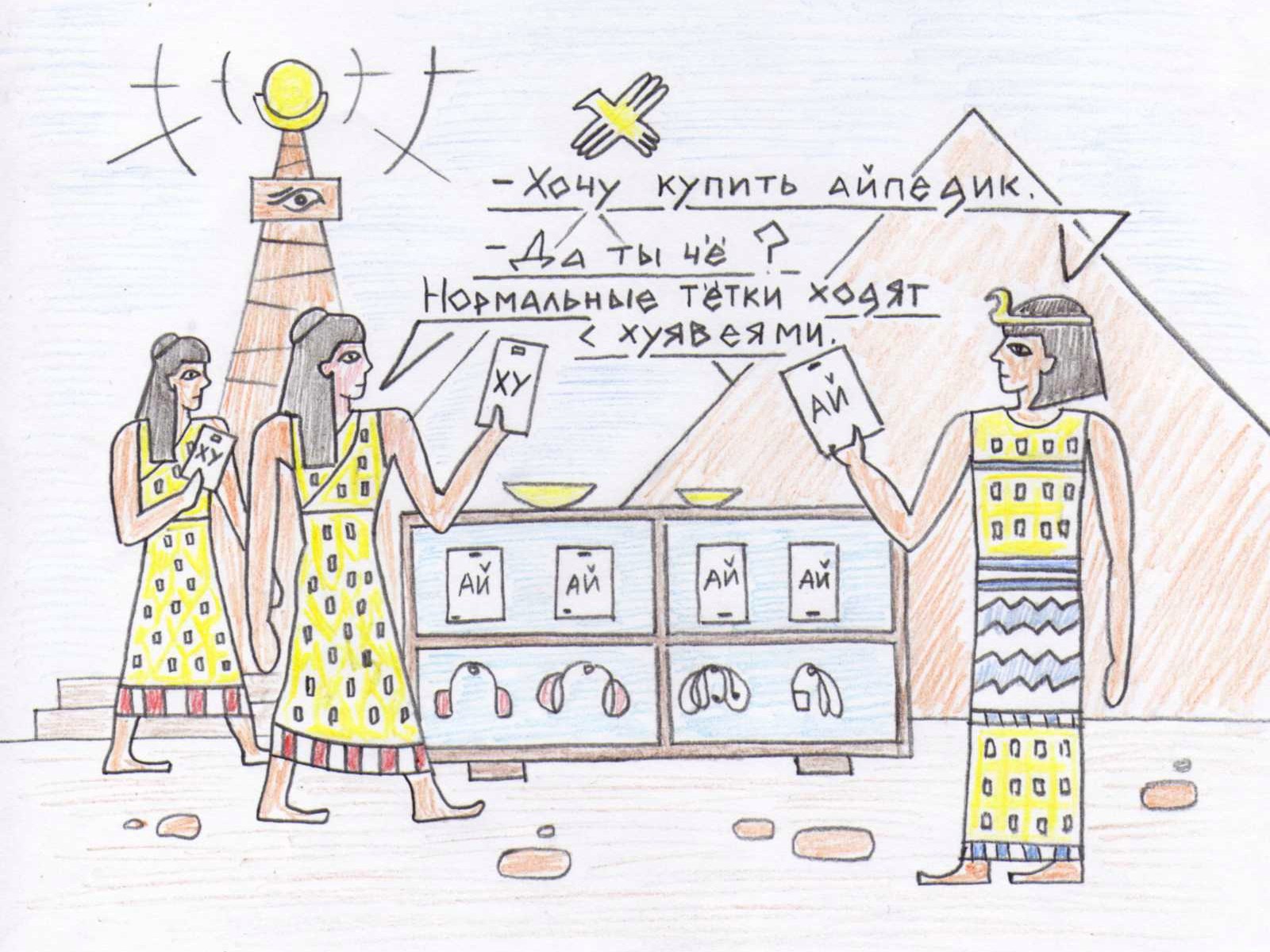
Social proof you can achieve the opposite effect in advertising. For example, when you show the audience unacceptable behavior and what many people do, viewers will think this way: “since many people do this, it means I will.” When a sign was installed in one of the US parks with the inscription: “Many visitors to the park took away pieces of petrified wood, which changes the natural state of the forest,” the number of thefts increased compared to the state when there was no sign at all. Use positive social proof.
3. The smaller the choice, the better
Instead of a line of 20 similar products, offer five or three. It will be easier for people to choose. When the Head & Shoulders shampoo line was reduced from 26 varieties to 15, sales increased to 15 percent.
Homework: if you translate the name “Head & Shoulders” into Russian, you get a highly idiotic name. Use the dictionary.
4. A gift in the form of your product harms the product
In duty free, smelly, noxious bottled liquids are often sold. This is whiskey, cognac and other rubbish. If you are given a bracelet with pearls as a gift for an expensive stinky bottle, your assessment of the cost of this bracelet will drop by 35% than if you would evaluate it separately.
Never give your service as a bonus to anything else. This reduces its value in the eyes of the consumer. Stop giving free advice so that your opinion does not depreciate. One hour of my working time costs 750 rubles, and when I spend free classes in schools, I always talk about the cost. Thus, students begin to appreciate the information that I give them.
5. Three products for sales compromise solution
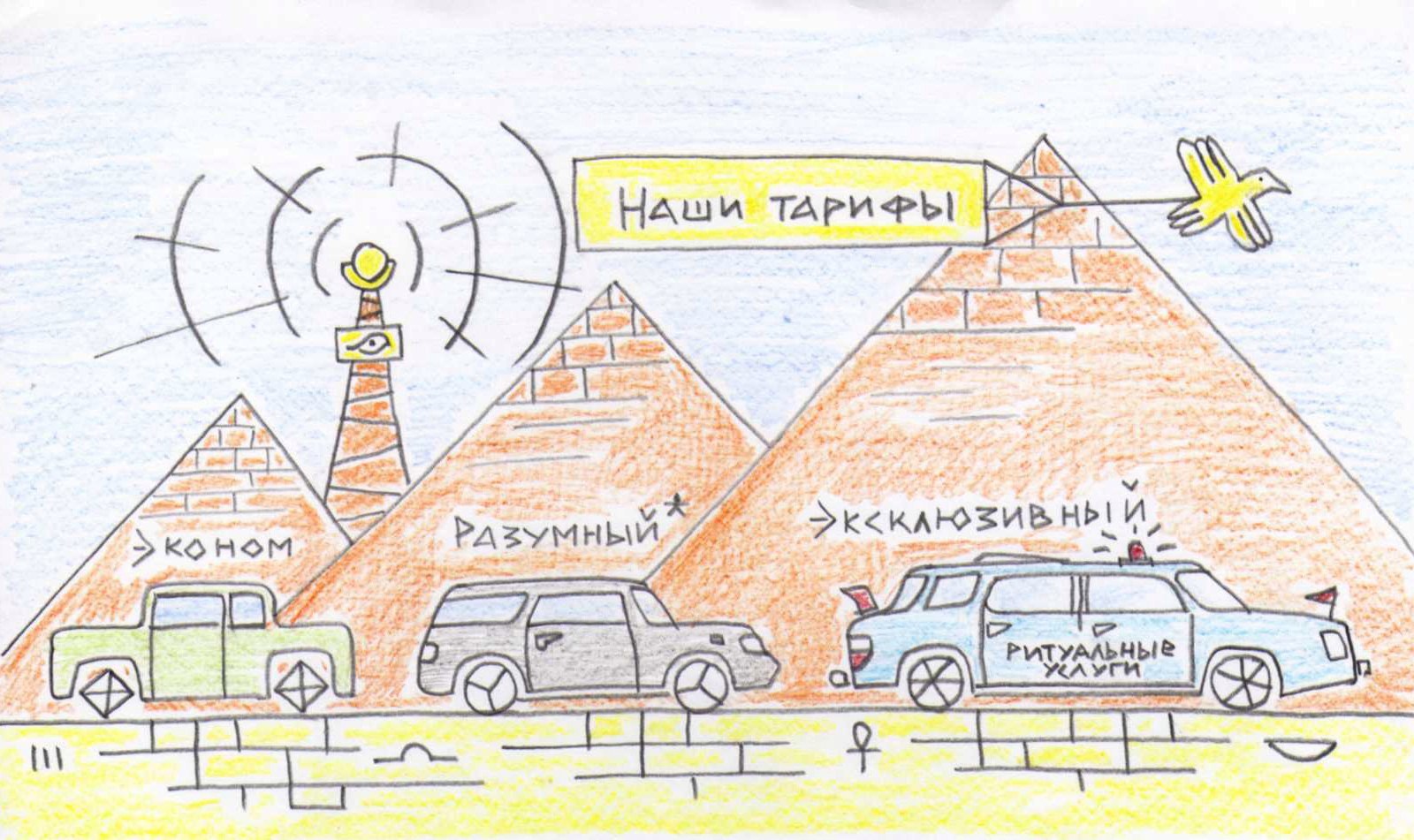
If you have only one product, your consumers have no choice. If a second, better product appears, its mere presence will increase the sales of the first. When a client asks you to develop software, consider three options: minimum, medium and maximum. You can make the minimum option deliberately unacceptable due to the lack of key functions. Medium will be the option you want to sell. And the maximum is the option with whistles, without which you can do the first year of operation of your product. You do not expect to sell the maximum option, but if suddenly the client buys it you will not be offended.
6. Fear with instructions to overcome the danger positively motivates
Scare people and propose a solution to the problem. If a solution is not proposed, you simply drive people into a stupor. Tell the children a couple of scary stories about how bad alcohol is and offer an alternative: what to do in your free time with friends. Important: this only works if you yourself don’t drink at all and are socially active.
Such a technique is often used by security guards and antivirus programs. They talk about how everything around is bad and unobtrusively reporting on how to counter threats.
When reporting problems to management, come up with an action plan to neutralize. When telling the patient about the dangers of being overweight, give a set of exercises and three cans of herbalife.
7. The principle of reciprocity
Do something for the person, and he is likely to answer you the same. Start a dialogue with a gift. A gift can be a good word or a small favor. I recently phoned one of the camp sites and told them as a gift how much they were missing, what they were missing on booking.com and how to be. As a result, the head of the camp site prepared to buy anything from me =)
When SberTech came to Cherepovets and sucked out all the developers, we had to open a programmatic school of javists. The result was a free service that we provide to candidates, and thanks to which some students feel a sense of gratitude and remain with us to work.
8. Write in person and by hand
The language of robots betrays you with the head: “Dear Vladimir Nikolaevich! We ask you…". It looks ugly and extremely stupid.
When I do newsletters about events through VKontakte, I make three different options for contacting different groups: those with whom I am at “you”, those with whom I am at “you” and those with whom I communicate quite closely. If possible, I supplement each message with personal details: “Hello! I remember that you liked the previous Wedafest. This Saturday will be ... ".
A message glued to the keyboard and handwritten works better than an e-mail. People see the extra effort and value it. At the same time, the study showed that the request is fulfilled better if you use a personal approach.
9. First a gift
Restaurants put bowls of candy at the exit and this is probably good. But the input bonus works much better. In the Cherepovets bon-appetite cafe, cookies and jam are served along with Koporye tea. It costs almost nothing for the institution, but it really pleases visitors and increases the size of the tip. This is the same principle of reciprocity: you ALREADY made the first step and you get paid the same.
10. The value of the service provided decreases over time.
If you helped a friend transport furniture, he will feel the greatest desire to reciprocate in a short time. And, on the contrary, you will remember well the provided service for a long time. Moreover, the first feeling of gratitude from your friend will weaken and in the end the significance of the service rendered will come to naught. On the contrary, your feeling of the significance of your unparalleled feat will intensify.
Remember this when asking for help. If a quarter of a century has passed since the move, your friend may have forgotten about it.
11. First ask a little, then a lot
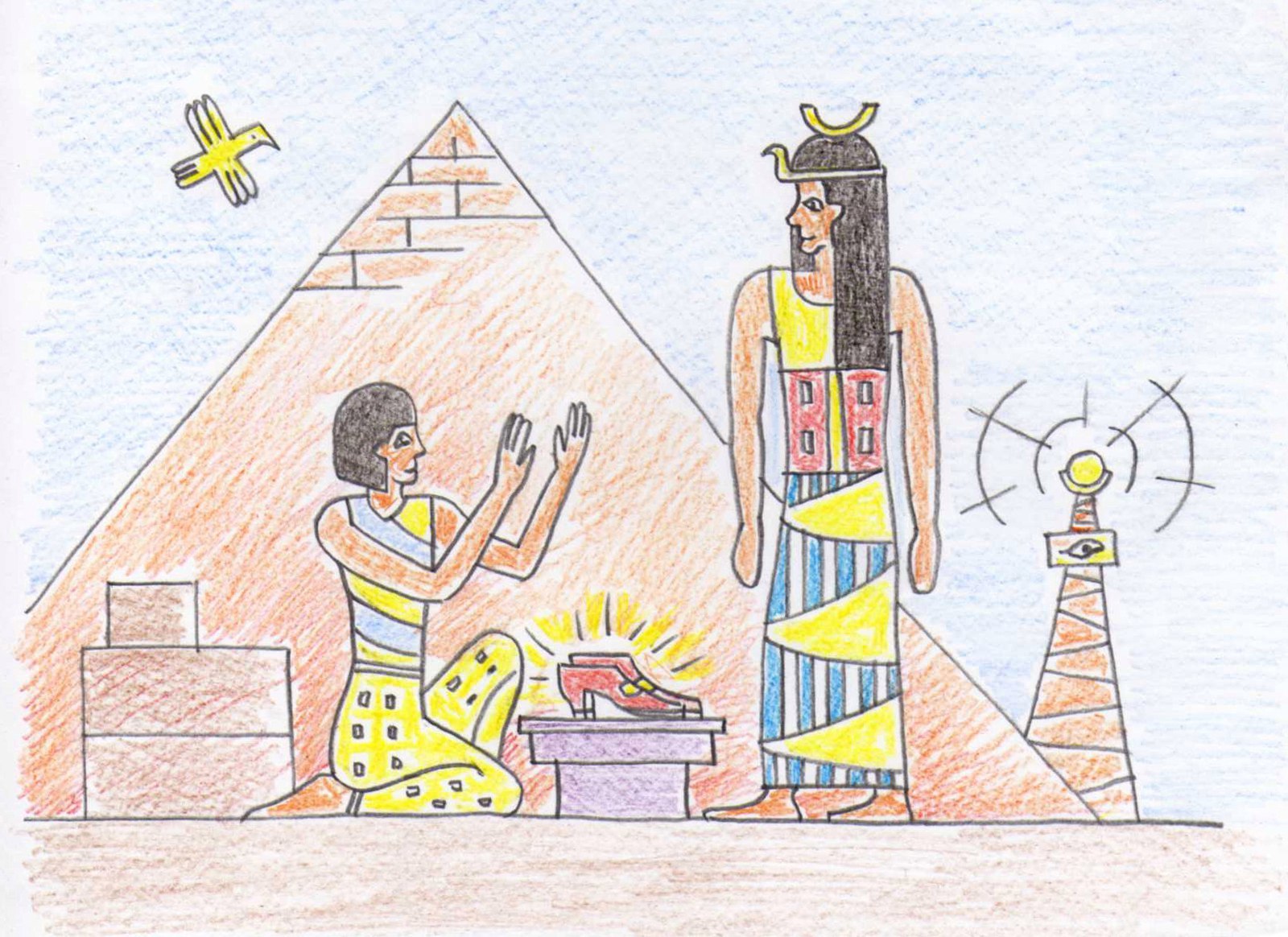
This strategy is called the “foot at the door”. Ask first for a small service that is easy to provide. Then you can ask for something more.
The book describes a study where homeowners were asked to put an ugly banner on road safety on their beautiful lawn. In the first sample, 17% agreed, and in the second, 76%. What's the Difference? A week before the second sample, people came to the people and asked to stick a small sticker on the glass with the same message. People during this time felt responsible for road safety.
In sales, this means that a large order is preceded by a small one. Sell candy first, and then you can sell the box.
12. Praise the person
It is useful to glorify a person a little. Think about it well and say something like: "you have all the abilities to cope with this, of course, difficult task." If you call a person a pig, he will grunt sooner or later. If you act the other way around and talk about him as a good person (although he may not correspond), he will seek to justify your trust and will begin to correspond to his opinion.
13. Ask a preliminary question and get a positive answer.
Example. I pre-call and ask: “How do you feel about online orders over the Internet?” Will their share in your industry decrease or increase? ” If you call the same people and make a personal offer to create an online store, the probability of consent to the meeting will be 25% higher.
The key point is precisely the positive answer to the first question. “Can you call if you need to cancel your reservation?” If the client answers “Yes”, the number of absenteeism in your restaurant will decrease from 30 to 10 percent. When your interlocutor says “yes,” he makes a commitment and strives to fulfill it.
14. Actively committed
Write down your goal and make it visible. If you want to get the child to achieve something, find out his goal and write it down too. This is an active commitment that can become a measure: useful / harmful, necessary / not necessary.
A hand-filled questionnaire works better than an automatic one.
PURPOSE TASKS: The applicant verbally expressed a desire to undergo training in the “Programmers”. How to increase the likelihood of his participation and successful completion of the course? What tricks from this article can be applied? Write about this in the comments.
15. Ask for a favor
One who has done you a favor once will do it again with great pleasure. Franklin asked his opponent for a rare book and this man became his friend.
A favor should be small. And this system works well in the field of charity. Tell me, for the needs of the orphanage, any contribution is suitable and even 50 rubles will come in handy. This way you collect more.
16. Low starting bid price
The experience of ebay and their statistics indicate that a low starting price allows you to sell goods more expensive. People get involved in bidding and immediately become attached to the product. If your product can be put up for auction - good. This strategy works for those products for which there will be competitive demand. If there is no big demand, put the normal price right away.
17. Let them introduce you
When you praise yourself, it looks immodest and ugly. Instead, ask a good person to introduce you. Let him, and not you, talk about your experience and qualities. Confirmed by research: A well-trained third party acting on your behalf can be very productive.
The sales volume in your office will grow if you introduce your employees to customers: “Do you need to buy a brick? Andrei knows all about brick and even visited all the brick factories in the region. I will invite him now. ”
18. Know that you know nothing
If you consider yourself the smartest, you will rarely listen to advice. This will lead to isolation and limitation. If you listen to everyone around and are determined that everyone can give you something useful, most likely, sooner or later, you will do something good. This does not mean that you make collective decisions. But this means that you listen to different opinions and make your own conclusion.
An important point: if you are the smartest, they may not tell you about your mistake and this will lead to disaster. For example, if you are the first pilot and the second pilot thinks that “it is necessary”, you can ditch the plane and passengers. Your duty is to get rid of the halo of infallibility around your person, so that anyone can question your decision.
19. Get rid of group thinking
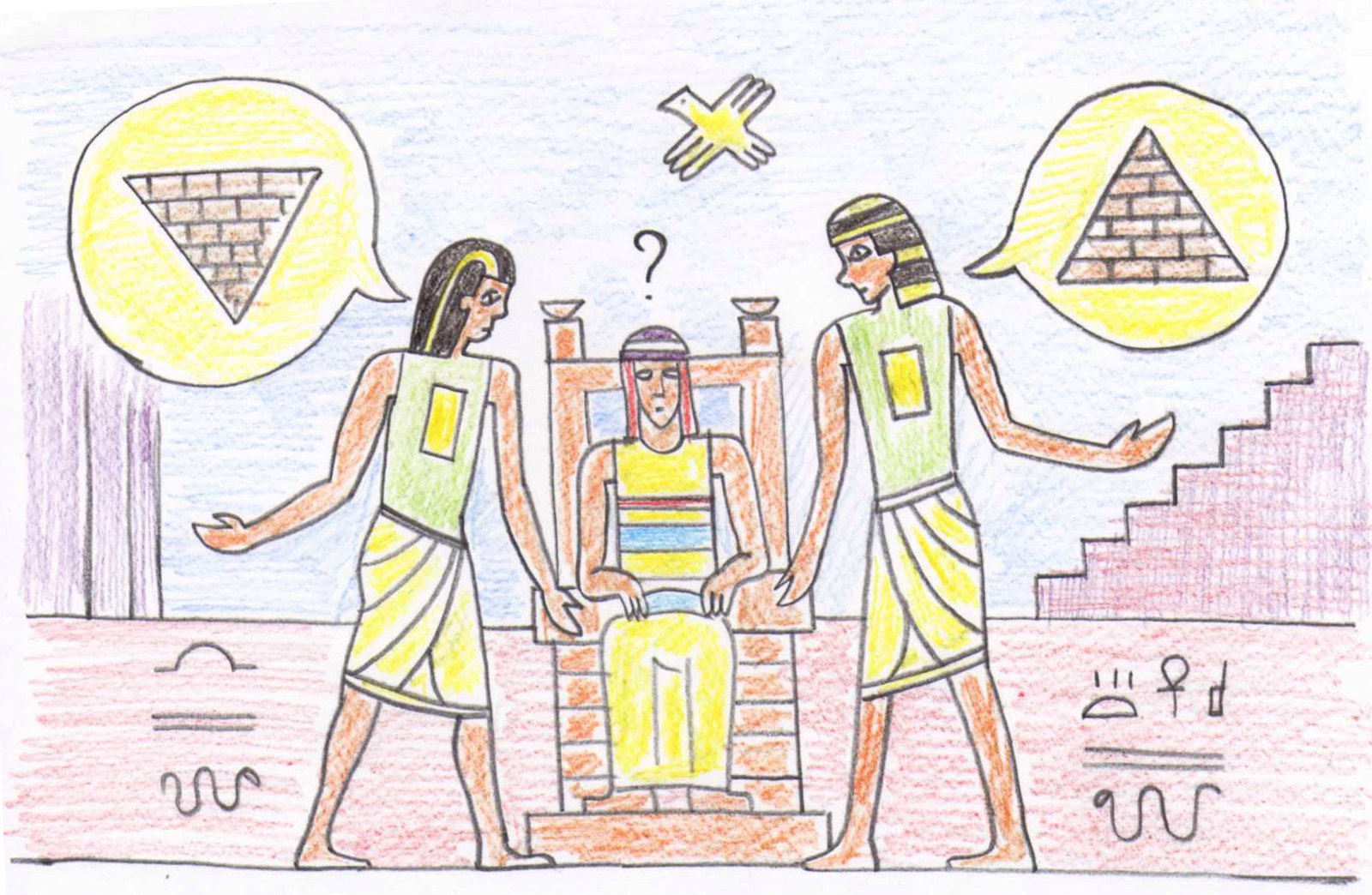
Many disasters happened because people were more concerned about maintaining relationships than opening up problems. Encourage criticism and skepticism. Especially to those points of view that are supported by the leaders of the group. Otherwise, the alarm may not reach the destination. Include in the nonconformist group.
20. Learn from mistakes
Studies show that when a group learns from mistakes, the quality of learning becomes higher than when a group learns from success. If you build employee training only on how to make the right decisions, this will not bring the desired effect. Try to explain to children that not smoking is good. At the same time, you yourself smoke, your mother does not smoke, and you tell by her positive example. Now take out your medical card with a cancer diagnosis from the box and tell the child about it. The second option will work better.
21. Tell us about the shortcomings and go to the benefit.
Tell us about the shortcomings of your product. When Volkswagen launched their “bug” on the US market, they wrote in the headlines like this: “Ugly only from the outside.” A lawyer may mention in advance the weaknesses of his position even before the prosecutor repeats the same thing.
When selling a car, you can mention minor flaws: sometimes the right brake light does not contact. This will create trust and the buyer with great confidence will treat the rest of your words. Deficiencies should be small enough. For example, if you lay out to the buyer that the engine is wedging in the car and the brake fails once a week, then most likely you will not sell such a car (but it’s better not to try, but repair it right away).
“We don’t have enough space, but it creates a cozy atmosphere”, “This course is not suitable for everyone: only diligent and meticulous people will be able to get to the end”, “Competitors have a similar car costs 100 thousand cheaper, but with our machine you will save on spare parts and fuel. "
22. Confess that you were wrong
If screwed up - apologize and say so. Organizations attributing failures to internal reasons will not only benefit society, but they will also profit. If you get wet in the rain - blame yourself, not Zeus. When you constantly blame circumstances, it gives the impression that you are not in control of the situation. If you assume responsibility for what happened, there is a possibility that people will think like this: “This guy, of course, is a goat, but he understood his mistakes and will not make them in the future. And he seems to be an honest man. ”
23. Similarity Adds Influence
When I was completely stupid and, living in St. Petersburg, went to a fraudulent office, the manager girl, asking me where I came from, exclaimed: “Oh! It's great! My grandmother lives in Cherepovets. " The scales at that moment outweighed her, and I thought that in front of me was a living person, who also has a grandmother.
Coincidence of names, cities, similarity of surname, birthday, height, weight, school: all this will help to establish a connection. If you know about such a coincidence, use it.
24. Mirror and repeat

Opposite you is a man sitting cross-legged. Do exactly the same. Does the client turn a pencil in his hand? Turn the handle. It should not be like mockery and caricature: imperceptibly and unobtrusively.
When the waiter repeats the client’s speech, the profit of the establishment increases by 70%. The client said: "This fried crap." Repeat exactly after him, but in the form of a question. An example from IT: “So you want the site to be light: let an elephant fly across the sky and spew concrete from the trunk. Right?". Then the client will have a chain: you_repeat → you_understand → you_do.
25. Rare things are of great value.
We want more if we know about the exclusivity of the goods. In a mint, a limited party minted a coin on which instead of a two-headed eagle accidentally turned out to be the head of Ksenia Sobchak? - Well! This coin will become a numismatic rarity.
Provide consumers with information about what is truly rare in your products and services. “You can order special tea from us. This is Ivan tea, which we collected and processed manually. Try it. " The owners of online stores use this, who write that there is “little” product left. A feeling of loss is triggering: what if I don’t have enough?
26. Cause a feeling of loss
When Coca-Cola changed the formula, a wave of protests took place across the United States. People demanded that the old Coke be returned. When Vkontakte changed the behavior of the wall, many users began to yell about the need to return the old wall. This is due to a feeling of loss. In a normal situation, we do not pay attention to the taste of cola or to the wall of VKontakte. However, as soon as there is a threat of loss, we begin to appreciate the lost.
Inexperienced investors sell stocks early, because they are afraid of losing already "earned" money. At GeekBrains they say that only during GeekConf you can buy a course with a 30% discount (I was fond =).
If you want to convince employees that you need to participate in your super-startup, let us know what they will lose in case of failure. Calculate the economic benefits of the option in the enterprise after two years and inform the guys.
The message “In case of refusal you will lose 50 cents daily” works three times better than “if you agree, you will save 50 cents daily”.
27. Say "Because"

It is the turn to copy. A man comes up and says: “Excuse me, can I go without a line? I have only five pages. ” 60% of people agreed to skip it. Probably thought that arrogance is the second happiness. But when the man reformulated the request, 94% of people let him in. He began to say this: "I can go out of turn, because I'm in a hurry." Further, the same man reformulated the question so that it turned out to be utterly stupid: “Can I go without a line because I need to make copies?” It is clear that he did not come to breakfast to the copier, however, 93% missed him.
The power of two words works: “because” and for small requests it is almost not important what you say after these words. However, if the request is more substantial (20 copies), few will lead to a pseudo-reason.
This principle has an additional effect. When you ask for a reason, your interlocutor begins to believe more in this reason and will remember it well. His opinion of you will improve: "What are two reasons why you like working with us." However, do not overdo it. If you ask for ten reasons, this will create the opposite effect.
28. Use simple words
People become attached to simple pronunciations. If your company is called Prom GrazhdanRemStroy-3 - this is kapets. Studies at the NYSE show that companies with simple names earn more.
Using too complicated a language has the opposite effect. Evaluate: “We are strengthening our assets and creating strategic alliances to form a center of reliable knowledge with a customer-driven business structure and the use of leading technologies to maximize the functioning of the human factor.” This is a publication from the NY Post, however, such garbage is often found on the About Company pages of bad sites.
You can use poetry as simple words. Poems in advertising contribute to memorization. Practice shows that the rhymed slogans of some commercials, viewers remember for 30 years. What can not be said about regular advertising messages. They even say that the rhyme message looks more truthful. I disagree internally with this statement, but the book says just that.
29. Use the best comparison
If you first lift a weight of 24 kilograms, and then lift a weight of 16 kg, you will feel how light it is. On the other hand, if you first lift 8 kg, and then 16 kg, then the same weight will seem harder to you. The point here is not in gear, but in perception.
First, tell us a little about some other product or item, and then go on to the description of the target product. There are times when we cannot change our product or our idea, but if we give a comparison that is advantageous to us, it will help us to be more convincing.
30. Let's head start
In car washes, customers often get cards. They are stamped on each visit. After 10 visits, the eleventh is free. If you immediately put down two stamps, the number of those who have reached the end will double. This is because the visitors got the impression that they had already done something and the path to the end of the quest is not so complicated.
This applies in everyday life. When you ask a person for help, let him know what steps he has already taken. For example, that he already has the necessary experience, that he has ready-made studies and thoughts on the right topic. If the project has already been started by you, inform us that the project has already been completed by 30 percent.
31. Suggest the original name
Colored pencils with weird color names sell better. For example, instead of green they write frog-green. Or instead of plain orange, millennium orange. It seems stupid, but it works efficiently. Unexpected names are a kind of puzzle: the buyer should think and solving this little riddle will make the product memorable.
The same method will work with children: prepare “Negro squash” for lunch or have “upma”, “kichri”, “sabji” and “caramel burfi” on your table. This is better than porridge, rice, baked vegetables and sweets.
32. Hang a mirror
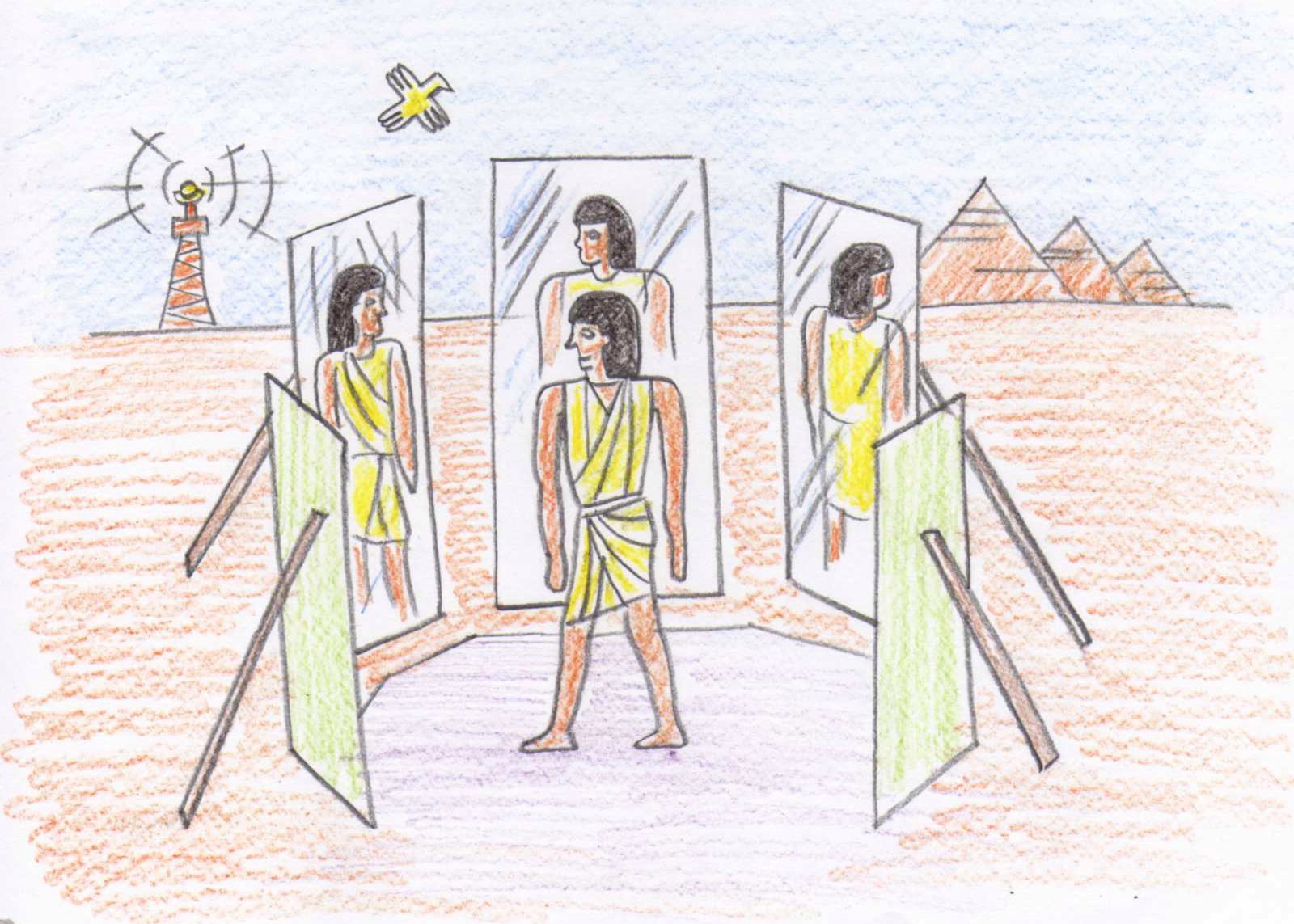
The mirror stimulates honesty. The children were asked to take one candy from the basket and left. The child was left alone with a basket of chocolates and struggled with the temptation to take more than one. As a result, 33% of children took more than one candy. When a mirror was hung next to the basket, the number of dishonest children was reduced to 8%.
When a person sees his reflection, he tries to behave in accordance with his social norms. Correctly placed mirrors help children to behave better in relation to each other.
Do your store employees steal? Put more mirrors in stock.
33. Control your emotions
Sad buyers are willing to buy goods at 30% more expensive. Sad sellers are ready to sell the goods at 33% cheaper than emotionally neutral. After watching a sad movie, people become more wasteful than after watching a neutral movie.
Before you start important negotiations, make sure that you are in a psychologically neutral state. Do not plan meetings one after another so that emotions have time to calm down.
As a seller, you can try to cause sadness and offer a profitable deal. However, the decision that your buyer will make will later be regrettable. If you are looking for a long-term relationship, do not use this trick.
34. Rest and do not be distracted
A tired person makes decisions rashly. Usually, when we hear a statement, we first try to interpret it as true, but after a moment we turn on the criticism and check if this is so. When a person is tired, the critic may not turn on. Do not listen and do not read any rubbish at night. It is better to read the scriptures: this will strengthen your faith =)
Around the same effect occurs when we are distracted. If at the time of negotiations you are distracted by something outsider or your interlocutor deliberately distracts you, there is a possibility of a bad deal. The telephone, non-standard units of measure in the contract, the bird outside the window and the neckline of the interlocutor can distract. If it is impossible to remove the distraction, postpone the decision.
35. Caffeine helps convince
Drink a person with a glass of coffee and start convincing. The thing is that caffeine reduces the ability to resist beliefs. However, this only works when the statement is well founded. With bad arguments, not even a liter of coffee will help you.
- There is no God, because I do not see him (bad argument).
“You have no brains because I don’t see them either (caffeine did not help).”
Invite a convinced person to a cup of coffee, having prepared well.
36. Meet in person or call
Studies show that talking to a person in person is much more effective than emailing. Especially if we are dealing with a woman. I hope that dear readers already have this understanding from personal experience.
The fact is that there are no emotions in the letter, and the emotional background of the message is the very elixir of conviction. Without emotion, the message will be dry and, even worse, it may be misunderstood. Write a letter with the text: “Well, you are a specialist” and you can’t predict at all how it will be perceived. All because there was no intonation in it.
I often write letters and I am very attentive to how it can be perceived. Can it be misunderstood? Are there any inaccuracies?
Ethics
Using persuasion techniques rests with your conscience. If you make a deal that is disadvantageous for a person based on the above techniques, he will be disappointed and your reputation will suffer. Of course, if you are some kind of "Russian Railways" or "Russian Post", your reputation is not so important: you are a monopolist and you do not care about the opinion about your service. But if you want to maintain good relations with customers, relatives, friends and partners, use them exclusively for the good of your neighbor.
“So in all that you want people to do with you, so do you with them, for this is the law and the prophets.” (Sermon on the Mount, Matt. 7.12)

Thank you to Alexander Kornilov for the illustration .
